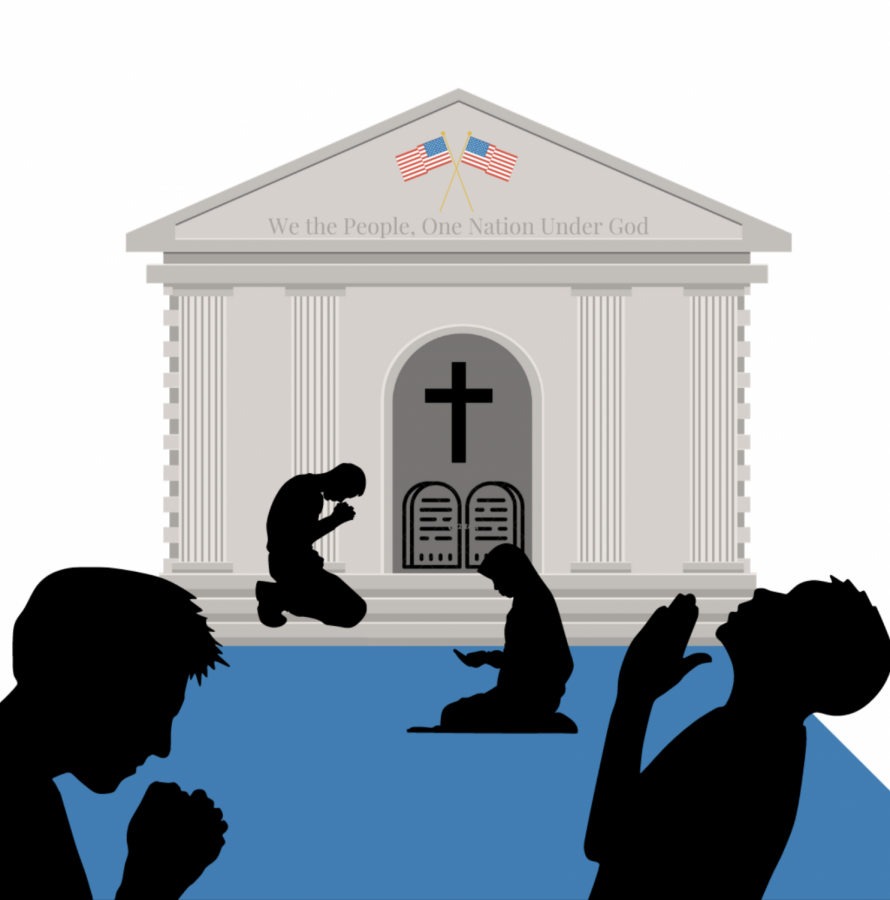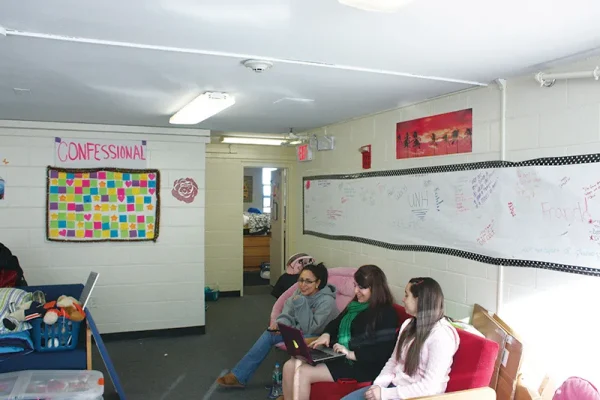Deconstructing taboo topics: Religion as a power structure
Religious freedoms have long been debated across the globe to justify power struggles and war. As they work in society presently, most governmental and cultural structures rely heavily on religion as a foundation and institutional framework. Though the U.S. has attempted to establish a separation of church and state, the foundations of American government and its law and order are rooted in a western religious moral code.
In the U.S., Christian religions are idealized. The academic and social calendar year are centered around Christian holidays, providing time off for Christmas. Alternatively, no other religion’s holidays are provided the same courtesy. The social assumption becomes that everyone is Christian until proven otherwise.
Conjunctively, religions that are predominantly practiced in the Middle East are often stigmatized and chastised for participating in their cultural and religious activities. All of this creates a culture of religious taboo on a social and political level, in which certain religions are recognized, respected and visible, while others are villainized and hidden.
This religious taboo perpetuates the perception of Christianity and Catholicism popularity, used by churches in the U.S., to assert their power and credibility to society. However, the reality of religious subscription is indicative of different trends. In the past 10 years, these religions have experienced a decline in population, the Christian population in the U.S. has declined 12%, Protestantism 8% and Catholicism 3%; while atheist or agnostic affiliations have increased 9%. Simultaneously, according to the PEW Research Center, Muslim, Jewish, Hindu, Buddist and “spiritual” affiliations have also increased.
A societal disregard for non-christian religions has created a false reality surrounding their popularity and strength. Such false strength is used to shape society in the image of religious values by maintaining the assertion of Christian and Catholic morals being most valid in order to argue policy. This has been seen most recently in LGBTQ+ and reproductive rights legislation.
Despite the social and political implications of accepting some religions while stigmatizing others, there are many positive contributions that religion and faith bring to society. In general, studies have shown that faith and spirituality are beneficial to mental and physical health. It helps people organize morals and better understand the world in order to function in society. Although, there is a healthy threshold where these positive effects are achieved before they impose on the wellbeing of others; placing more respect in Christian and Catholic religions while stigmatizing other faiths crosses this threshold.
Overall, religions are classified and exalted based on an arbitrary set of rules to further solidify the power structure established by those who hold it. As such, a hierarchy of spirituality is developed where some religions are revered, others are recognized but not respected, and some are reclassified as mythologies. It is when the difference between mythology and religion is analyzed that the emphasis on power in religion becomes clear.
The allegory contained in the Bible, Torah, Quran or other religious texts, in comparison to mythologies, achieve the same purposes. Each faith uses storytelling to account for natural phenomena and morally align its followers. For example, the Greek legend of Medusa tells of a story of a woman who turned to a monster to protect herself from male attackers and Matthew 5:29 teaches men to pluck out their own eyes before allowing themselves to lustfully sin. Each is a story that contains lessons regarding lust and consent; however, the Greek version is regarded as a myth while the Christian version is regarded as religion.
Because faiths held by ancient peoples no longer have a large following, they no longer hold social power. This has reduced these religions to mythology so that majority faiths may sustain a greater platform at the price of the obsolescence of others. Greek and Roman faith was decimated by Catholic imperial rule, and now Catholicism is one of the world’s leading religions. Are currently stigmatized religions in danger of being demoted to the status of mythology in order to maintain the national power structure rooted in Christianity?
An article by BBC proposes that the fate of religions is dependent on the quality of life in a country. If people are constantly fearful of their wellbeing, they are more likely to continue to be faithful, whereas those who feel secure are more likely to hold secular beliefs. In essence, in order for religions to maintain power, they must ensure a system that maintains insecurity and inequality.

Isabelle Hajek is a senior at the University of New Haven majoring in psychology with a concentration in forensics and a double minor in criminal justice...














